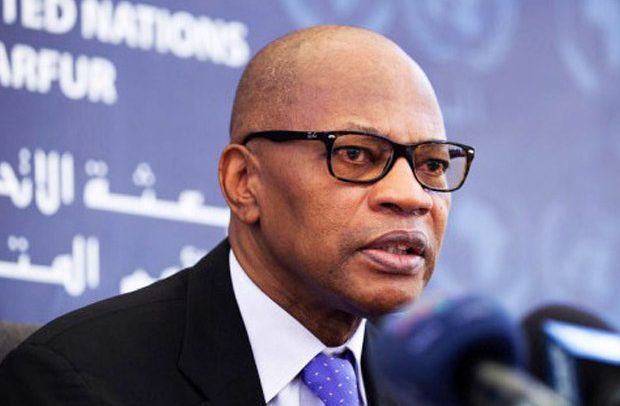Dr. Mohamed Ibn Chambas
CHAIRMAN OF ECOWAS Trade Liberalisation Scheme Task Force, Dr. Mohamed Ibn Chambas, has stated that all economies within the sub-region are facing difficulties as a result of the COVID-19 pandemic and the ongoing war between Russia and Ukraine.
According to him, the development has affected the African continent more than other continents, which has necessitated the promotion of intra-ECOWAS trade to support the continent’s economy.
Dr. Chambas was speaking as the guest speaker at the opening ceremony of a two-day sub-regional stakeholder workshop on promoting small scale cross border trade, rule of law and use of technology, the case of six countries in West Africa.
The workshop, which was organised by the POS Foundation in partnership with the Ghana International Trade Commission, and with support from the Deutsche Gesellschaft für Internationale Zusammenarbeit (GIZ), was under the theme ‘Promoting Small Scale Cross Border Trade, Rule of Law and Use of Technology in West Africa’. It drew participants from Ghana, Nigeria, Togo, Benin, Ivory Coast and Burkina Faso.
He called for the removal of bottlenecks that are hampering the free movement of goods and services within the sub-regional bloc, which are affecting development.
He added that it is time for member states to encourage the use of technology and collaboration among all stakeholders in the ECOWAS sub-region, as well as look inward to see how they can draw strength from their own economies, produce more internally, trade more and try to take advantage of the opportunities for trade-led development.
Dr. Chambas also highlighted the need for ECOWAS to catch up with other regional integration groups such as the European Union (EU) and Asia whose intra trading is around 68% and 65% respectively.
That, he said, will address the issue of a common currency which the bloc has been trying to implement for years, adding that “If we truly scale up trade, we will also move quickly towards that common currency.”
Corroboration
His remarks appear to corroborate Vice President Dr. Mahamudu Bawumia’s own when told Ghanaians at the TESCON conference in Yesukrom, Kasoa in the Central Region recently that the global economic challenges had had effects on the country, and insisted that despite the challenges being faced in Ghana, the current state of the economy is still better than in the heyday of the former administration.
Dr. Bawumia said regardless of the fallouts of COVID-19 on Ghana’s economy, “The growth of the economy is fundamentally stronger than it was in the 2013-2016 period” and added that “the path of inflation in Ghana has been similar to those of other countries following the COVID-19 pandemic.”
Inflation had declined from an average of 17.5% in 2016 to an average of 7.2% in 2020. Since the pandemic, inflation has increased to an average of 10% in 2021.
In response to the recent increase in inflation, the Bank of Ghana has increased the policy rate by 2.5% from 14.5% to 17.0%, he said, adding that the robust fiscal discipline under the Akufo-Addo-led administration is a contributing factor to the country’s strong economic fundamentals.
“The developments in the fiscal balance show a remarkable and sharp dichotomy between the fiscal deficit (i.e. the differences between government revenue and government expenditure) before the COVID-19 and after COVID-19. The fiscal deficit between 2013 and 2016 averaged 7% of GDP. Between 2017 and 2019 (before COVID-19), the fiscal deficit declined to an average of 4.5%,” he explained.
The country, he said, “can only build a vibrant modern nation if we have strong systems and institutions that work, otherwise we will be stuck in a vicious cycle of rhetoric and underdevelopment.”
Workshop Objective
Meanwhile, Executive Director of POS Foundation, Jonathan Osei Owusu, explained that the two-day sub-regional stakeholder workshop is intended to provide a platform for trade stakeholders to converge, dialogue and identify challenges and prospects existent within small scale cross border trade in selected West African countries which include Ghana, Ivory Coast, Burkina Faso, Nigeria, Togo and Benin.
He said it is being organised following the execution of Focal Group Workshops organised in the aforementioned countries to identify key sector actors and solicit for information for an effective project rollout.
Mr. Owusu noted that trade is one of the easiest ways for countries to integrate across borders through physical and virtual/technological means, hence the rule of law plays a fundamental role at the national, bilateral and multilateral levels of engagement.
He called on businesses in Africa to develop a coordinated, consistent and harmonised system to bring about trade liberalisation on the continent.
All the representatives of the participating countries called for urgent measures to address the difficulties faced by traders, especially the illiterates across the borders.
BY Gibril Abdul Razak


